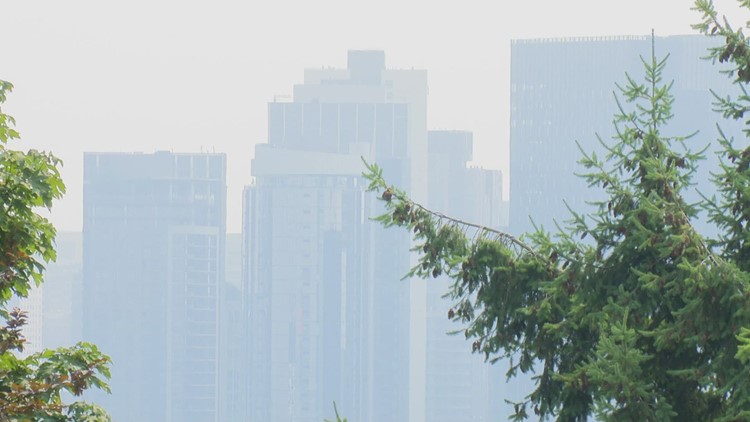SEATTLE — People in 16 overburdened communities impacted by air pollution around the state of Washington are more likely to have negative health outcomes and die 2.4 years sooner on average according to a new report issued by the Washington State Department of Ecology (Ecology).
The report is part of the department’s push to improve air quality in communities that are historically impacted by health, social and environmental inequalities and are highly impacted by air pollution, like ozone and fine particulate matter. The state’s Climate Commitment Act directs the agency to issue a report annually, with the 2023 edition being the first one.
There are over a dozen communities around the state that Ecology identified as “overburdened,” meaning vulnerable populations living in those areas face environmental harms and health impacts or risks due to exposure to pollutants or contaminants, which may result in “significant disparate adverse health outcomes or effects.”
The communities include a cluster in the Puget Sound area and multiple other locations across the state:
- Ellensburg
- Everett
- George and West Grant County
- South King County
- Mattawa
- Moxee Valley
- Northeast Puyallup
- North Seattle and Shoreline
- South Seattle
- Spokane and Spokane Valley
- South and East Tacoma
- Tri-Cities to Wallula
- Vancouver
- Wenatchee and East Wenatchee
- East Yakima
- Lower Yakima Valley
People living in overburdened communities have been identified as having more health problems, including lung and heart disease, than average across the state and were also found to live 2.4 years less on average. Fine particulate matter was identified as the main air pollutant impacting people’s health.
The report found that older adults living in overburdened communities were twice as likely to die due to illnesses linked to fine particles than the statewide average. Older people of color have a higher risk of death due to breathing fine particles than older white adults living in the same areas.
People in overburdened communities experienced on average 7.5 days with unhealthy air quality, higher than the state average of 6.7. Most unhealthy air days occurred because of wildfire smoke events. Ground-level ozone is also a concern in some communities, especially during heatwaves and in drought-stricken areas.
Ecology said next steps include continuing outreach in overburdened communities and building partnerships with interested agencies and tribes to continue monitoring air quality in impacted areas.



